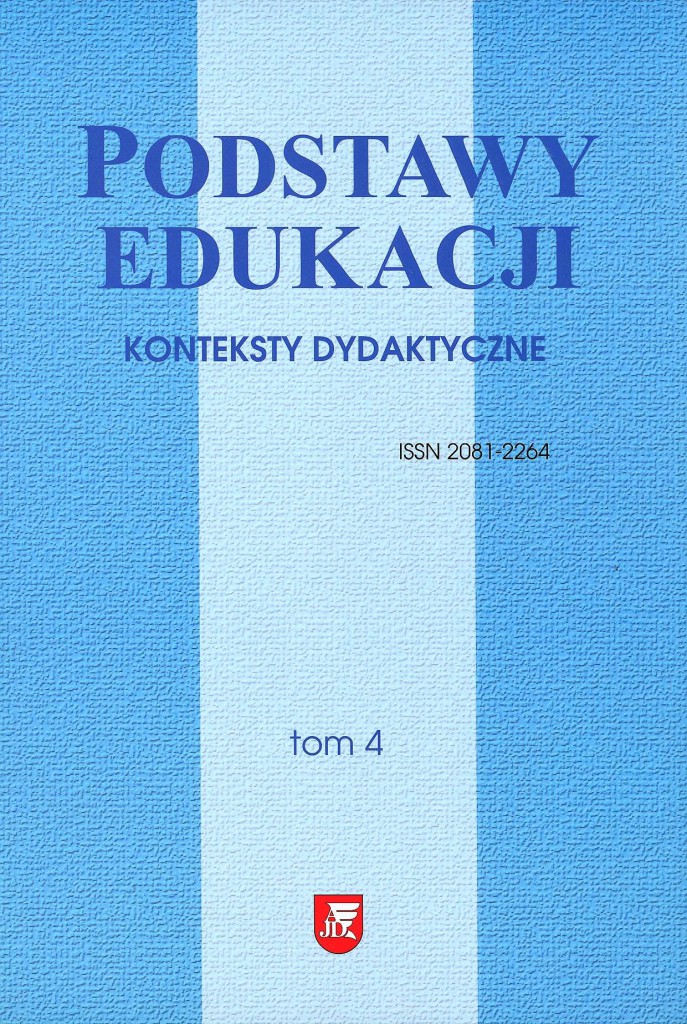Abstract
The paper presents figure of Joseph Calasanz, a Catholic priest who lived at the turn of the sixteenth and seventeenth centuries. Calasanz views shaped by the spirit renaissance humanism had considerable impact not only in the perception of the learning process, but also in determining the state’s role in the organization of free education for the poorest orders of society. In modern times Calasanz’s education system, although partially organized by the secular authorities, did not function as efficiently in order to ensure equal access to an education. Therefore, in this article, in addition to presentation of a Joseph Calasanz, it was primarily an attempt to present a system developed by his teaching focused on free and universal education.
References
Bereźnicki, F. (2007). Dydaktyka kształcenia ogólnego. Kraków.
Guerri, S.G. (1994). Święty Józef Kalasancjusz. Kraków.
Kupisiewicz, C. (1973). Podstawy dydaktyki ogólnej. Warszawa.
Kupisiewicz, C., Wojnar, I. (1996). Myśliciele – o wychowaniu. Warszawa.
Kurdybacha, Ł. (1965). Historia wychowania. T. I. Warszawa.
Niemierko, B. (2007). Kształcenie szkolne. Podręcznik skutecznej dydaktyki. Warszawa.
Okoń, W. (2003). Wprowadzenie do dydaktyki ogólnej. Warszawa.
Stępień, R. (1994). Współpraca pijarów z Komisją Edukacji Narodowej na terenie Korony. Wrocław.
Spinelli, M. (2009). Święty Józef Kalasancjusz. Kraków.
Suchodolski, B. (1964). Zarys pedagogiki. T. 1. Warszawa.
I am aware that the journal is published under the Creative Commons Attribution License (https://creativecommons.org/licenses/by/4.0/legalcode).
By submitting an article, I agree to make it available under this license.
